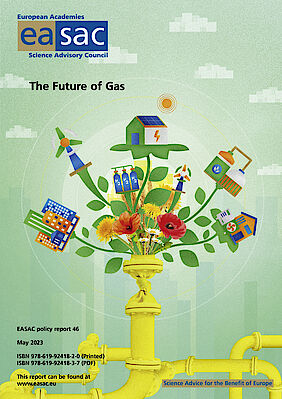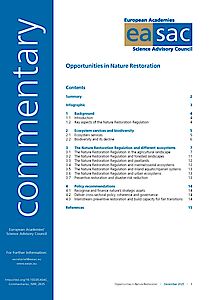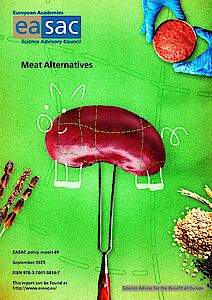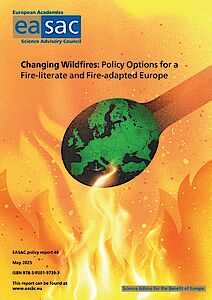Publications
Future of Gas
Natural gas is not cleaner than other fossil fuels and using it instead of coal or oil risks achieving little or no reduction in greenhouse gas effects. EASAC’s new report “Future of Gas” highlights the extremely high global warming potential of largely unrecorded methane leakages along the whole natural gas supply chain. To mitigate climate change, it is crucial to stop using all fossil fuels, to ban new natural gas boilers, and to massively ramp up renewable electricity production.
With 65 million boilers installed in the EU to heat buildings, heating is by far the largest use of natural gas. Eight Member States have already adopted measures to ban the installation of new gas boilers or to require high levels of renewables in buildings. Such actions should be stimulated throughout Europe.
The report recommends heat pumps and district heating as ready-to-use and climate-friendly alternatives to gas boilers. It underlines that heating, unlike electricity, is a very local market. Building structures and regulations, local climate, demand densities and the availability of renewable or waste heat sources influence what should be the best choice for each district or individual building. Therefore, cities must integrate the transition into urban planning, and engage with heating system owners and users. Also, it is vital that this process addresses social injustices.
Natural Gas no more a transitional option
For a long time, natural gas has also been seen as the ideal bridge from coal on the road towards net-zero carbon emissions by 2050. In some countries, natural gas has become the main fuel to generate electricity. EASAC’s “Future of Gas” report makes clear that this is a dead-end road.
The report also weighs the possibilities of carbon capture and storage (CCS) and nuclear. The coming decade is decisive for keeping climate change in check, but fusion is still in its infancy, and neither CCS nor new nuclear plants based on current or small modular reactor technology can be built quickly enough. In addition, in many regions, nuclear power plants risk becoming vulnerable to climate change effects such as cooling water scarcity.
War in Ukraine as a catalyst for a quicker transition
This EASAC project was started in the late autumn of 2021, before the invasion of Ukraine brought energy security and the role of gas to the top of the political agenda. Beyond the suffering of the Ukrainian population, the invasion has created disruptions in energy and pressures on the European economy that weigh on all parts of society, but it has also acted as a catalyst for action. Policy-makers, energy suppliers, energy users, and the finance sector must now work together to secure adequate supplies of clean energy while rapidly phasing out the use of fossil fuels.
DOI: 10.1553/EASAC_Report_Future-of-Gas_2023
back to overview
































